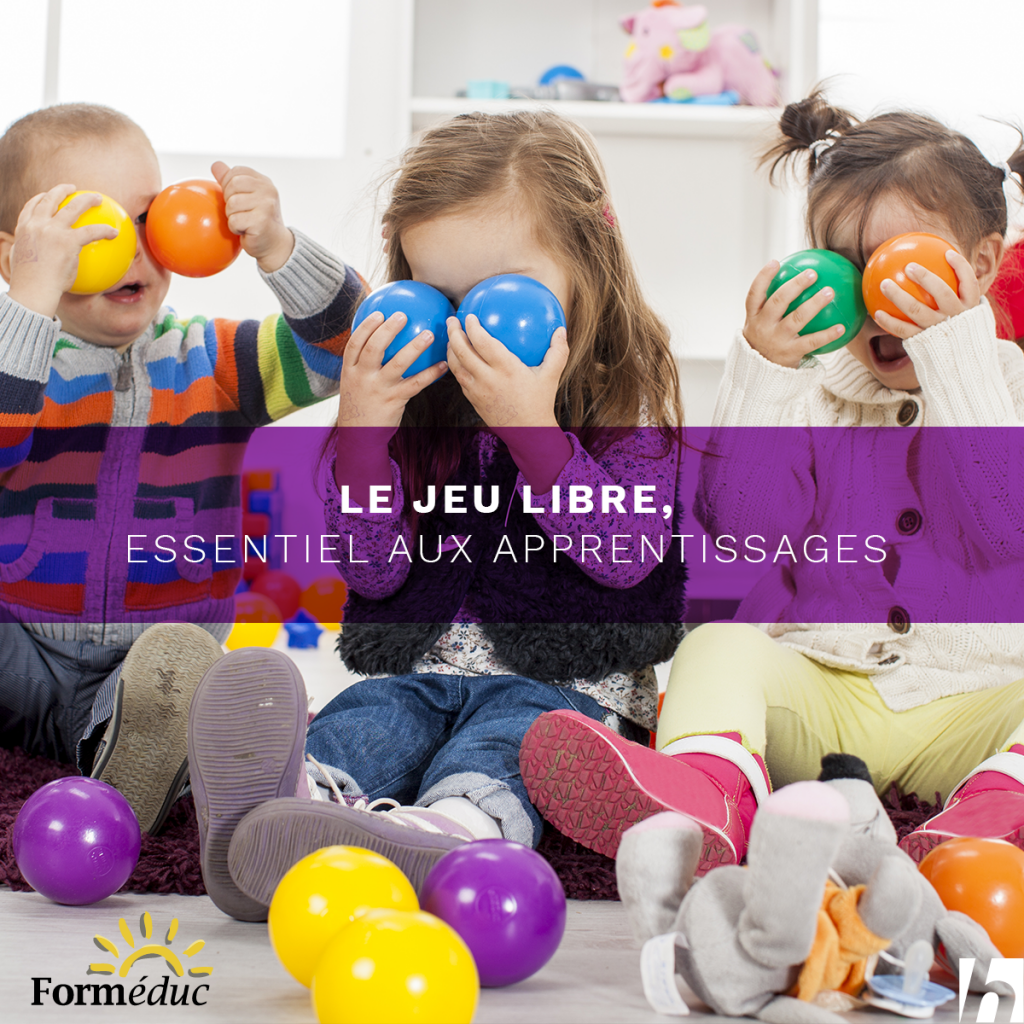

- 25 November 2020
- |
- Andrée Bouchard
Often regarded as a form of entertainment or simple occupation, play plays a vital role in a child’s development. Whether directed, animated by a theme or presented as a workshop, every activity offered to the child is fun and fosters the development of certain skills. However, it’s through free play – a spontaneous activity with no pre-established rules, carried out for pleasure and not directed by adults – that children experiment and make their most important discoveries.
It’s through free play that children learn to solve problems, negotiate, make friends, become familiar with difference, confront their own point of view with that of others, demonstrate creativity, tame their fears, manage their anger and recognize their abilities, limits and interests. Although directed activities or rule-based games are fun and enriching, especially socially and cognitively, they don’t stimulate creativity as much as totally free play.
We focus on free play in our “Free play, essential to learning” course, to understand its importance in the development of various skills, and to value it as an activity that enables children to realize their full potential.
Early childhood no longer rhymes with carefree days
From the earliest age, children are expected to perform: it’s up to the one who speaks, walks, learns to count or draws letters first. From the moment they are born, children are seen as potential geniuses, capable of feats that will make their parents proud and happy.
This quest for excellence, even perfection, extends right down to the day-care center, and educators are no exception. It’s a mirror image: perfect children mean high-performance childcare environments. We want results. So games are geared towards a specific objective, such as learning to count or improving motor skills.
And performance can be measured… crafts brought home, nursery rhymes recited to the parent at the end of the day, photos taken during the last outing… in short, these traces of activities done at the daycare center are proof that the child has indeed “done” something there. It’s as if an activity you can’t measure loses its value…
Yet child specialists are categorical: children have less and less time and space to play. They’re trapped in strict schedules, caught between the routines and rules of daycare and family activities at home. And when children are finally able to play, they do so under the supervision of adults, who provide a safe environment and are ready to intervene at the first sign of conflict.
Play has thus been taken over by the adult, despite the principles of the educational program: the child is unique, the child is the primary agent of his or her own development, child development is a global and integrated process, and above all: the child learns through play.
By dint of imposing constraints on children, we’ve forgotten what’s essential: children play!…




